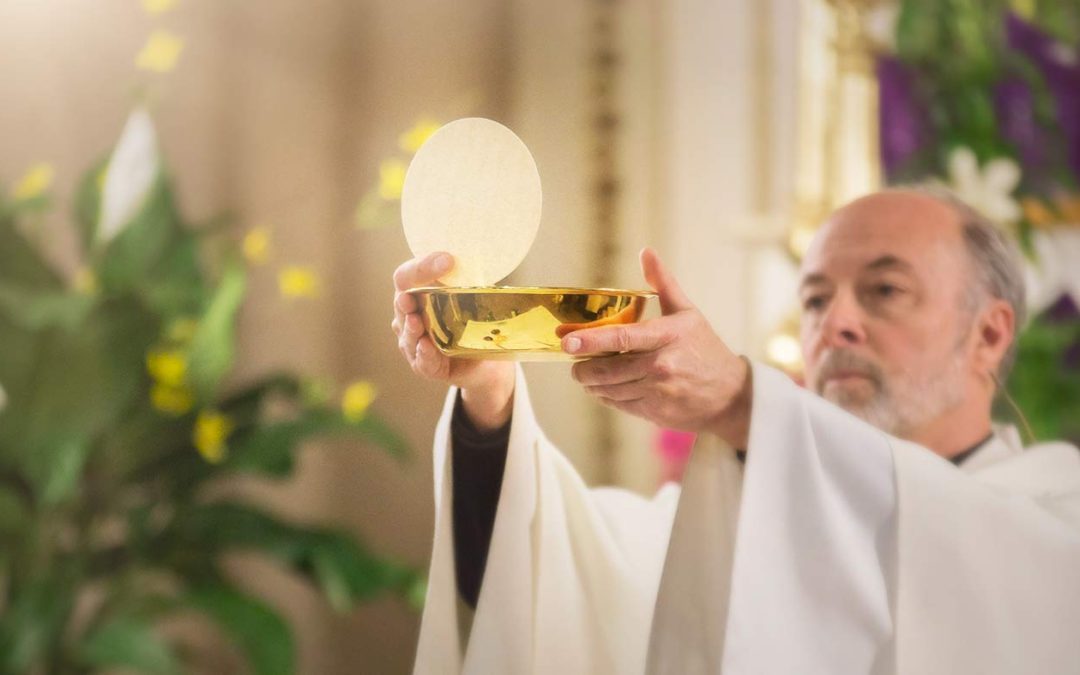Dear Friends,
Last week, the Catholic Bishops of the United States generated quite a bit of press as they discussed something that would ordinarily seem to be quite mundane in the eyes of the world; they discussed whether or not to write a document about the importance of the Eucharist in the life of the Church and in the life of Christians. The discussion generated a lot of press because there were some who foresaw that the document could be used to keep politicians, who are not in total agreement with the Church on moral issues, from receiving communion until they changed their position.
While I did not follow the news closely, it seems to me that the hullabaloo over the proposed document is a bit premature since it was not yet written or voted on. How do you critique something not yet written? We do not even know what it is going to say. Some have already begun suggesting that local Nebraska politicians be kept from communion because they disagree with the church on certain moral matters.
I am glad that I do not have to make decisions about who should or should not receive the Lord. I find myself totally incapable of making a judgment about the spiritual state of another person’s relationship with God. I take great comfort in Jesus teaching us that if we want to avoid judgment then we should avoid judging others; and, that the measure with which we measure will be measured back against us. So, the best thing I can do is to strive to do my best to live as Jesus taught and leave judgment about others as a matter best left to God.
I think I can, however, talk about the importance of the connection between our reception of the Eucharist and our moral lives without judging anyone. Certainly, St. Paul saw a very important connection between how Christians were treating one another and the presence of Christ in the Eucharist. He told the people of Corinth, since there were divisions among them between the rich and poor members, that what they were sharing could not be the Body of Christ. They were to reform their ways and be a people who welcomed those who were different from them, living in unity or they were eating their own condemnation.
Part of the challenge for the bishops is getting those who are not Catholic to understand who is present when we share the Eucharist and what we become when we share Eucharist. If we understand that, then we can understand the connection between our moral life and the Eucharist. Without the Eucharist, there is no Church. The Eucharist produces Church as the Body of Christ. It is only this Body which is charged with the task of discipleship and truly capable of following Jesus, of embodying the Kingdom of God in this world.
You and I know that we have been transformed by our reception of the Eucharist and we have been molded by the liturgy we celebrate daily and on Sundays. When we read the lives of the Saints we come to understand that their heroic lives are made possible through their reception of Jesus in the Eucharist. However, we also know that the Eucharist does not make us all identically the same. Thus, Dorothy Day, shaped by daily Mass, praying the Liturgy of the Hours and the corporal works of mercy, embodies Christian life quite differently from Thomas Merton, a monk who was similarly shaped by daily Mass and the Liturgy of the Hours.
As Christians, our transformation has grown out of a deep love or friendship with God. This deep friendship is a significant part of what is conveyed in the very intimate act of eating the body and blood of Christ. “Whoever eats my flesh and drinks my blood remains in me and I in him.”
It is this abiding, mutual love that lies at the heart of eternal life. It is from this deep love that a life of Christian discipleship grows. In this same deep friendship lies our hope for eternal life with Christ beyond the grave. “Whoever eats my flesh and drinks my blood has eternal life, and I will raise him on the last day.”
As Pope Francis likes to stress, we do not have to be perfect to receive the Eucharist. Jesus intended it for the strengthening and healing of those whom he had chosen to be his friends. Little by little, over time, we who share in the Eucharist become more like Jesus himself. We become what we share.
Please keep the Church in your prayers over the next few months as this instruction on the Eucharist gets written. May it truly help us better understand the great gift we are blessed to receive.
Peace,
Fr. Damian



